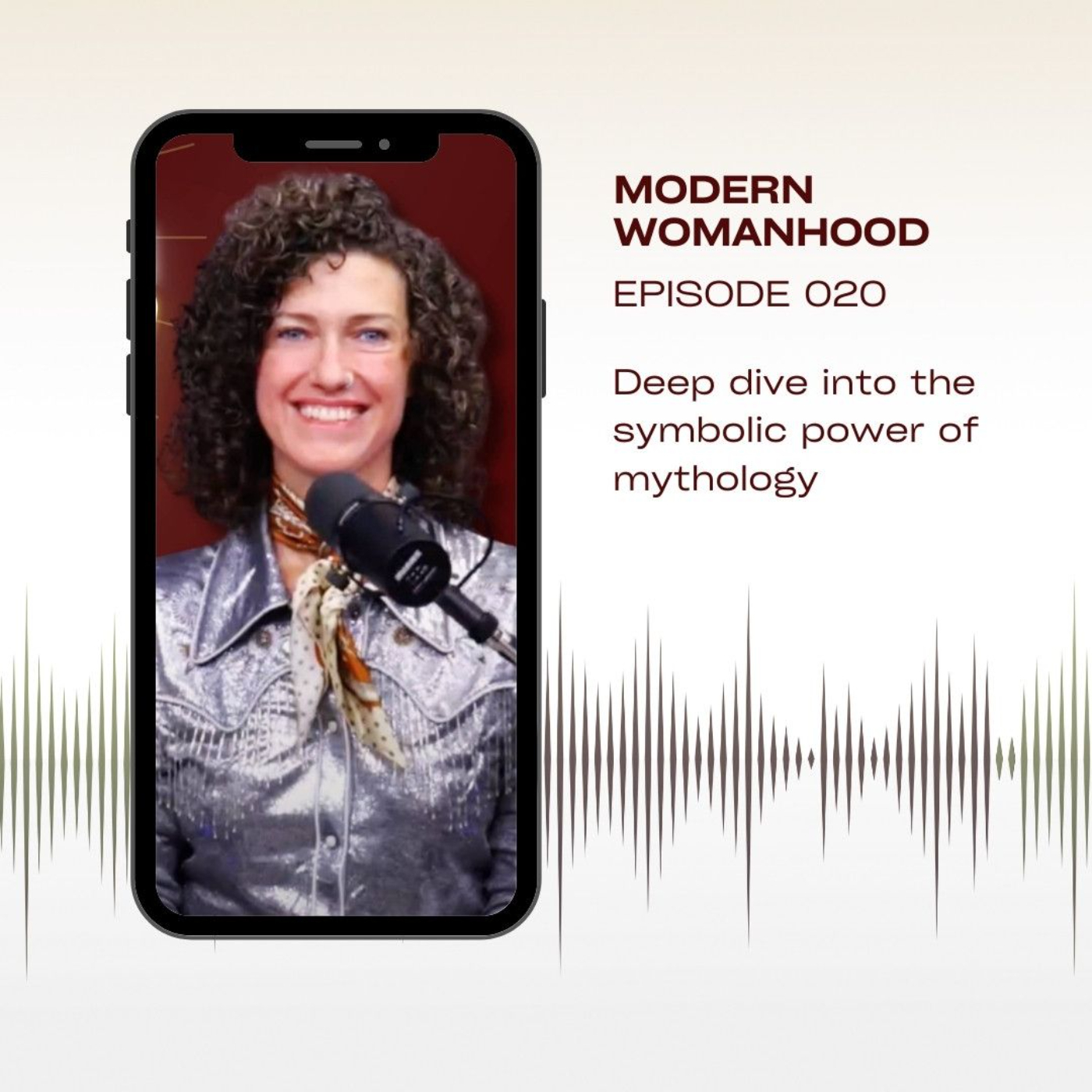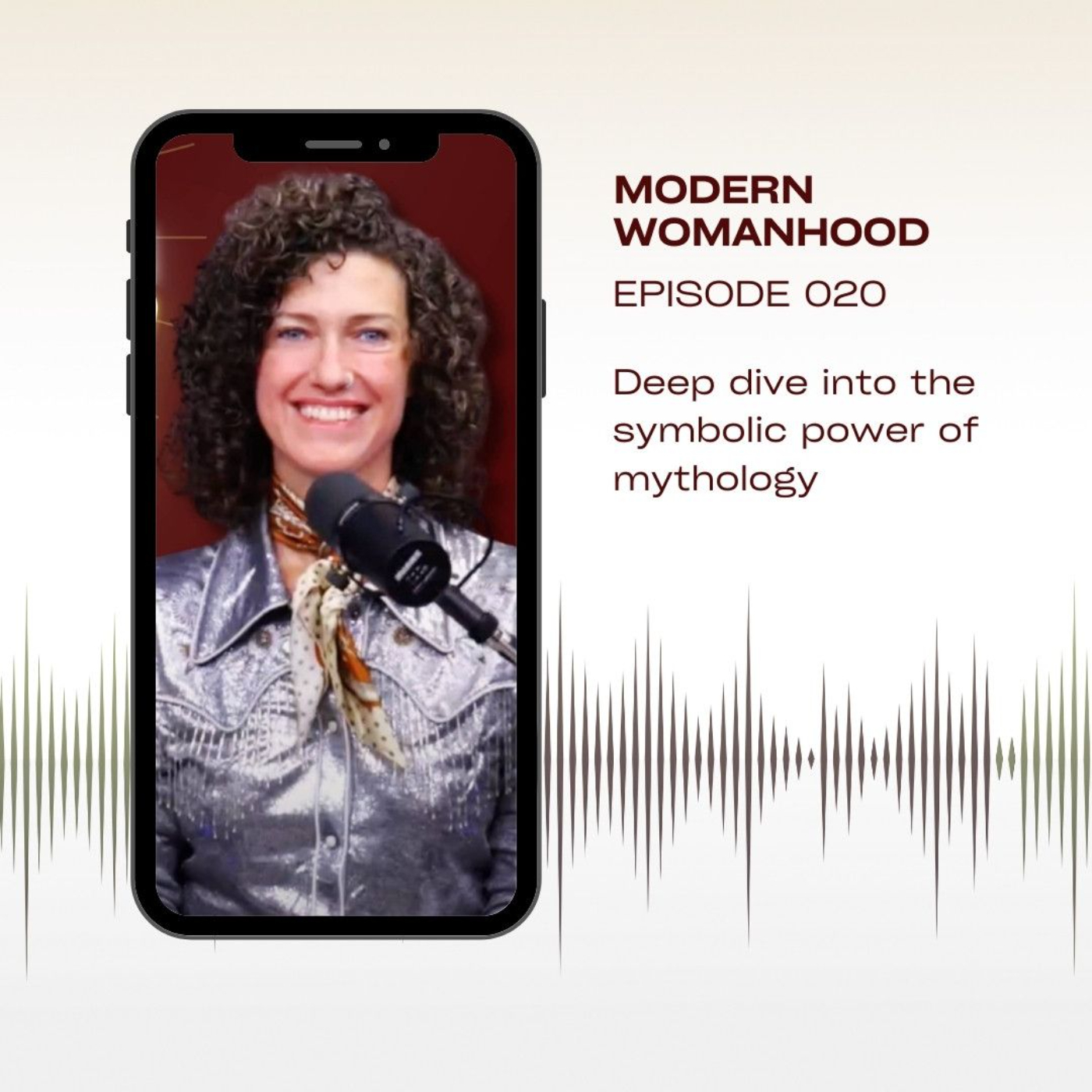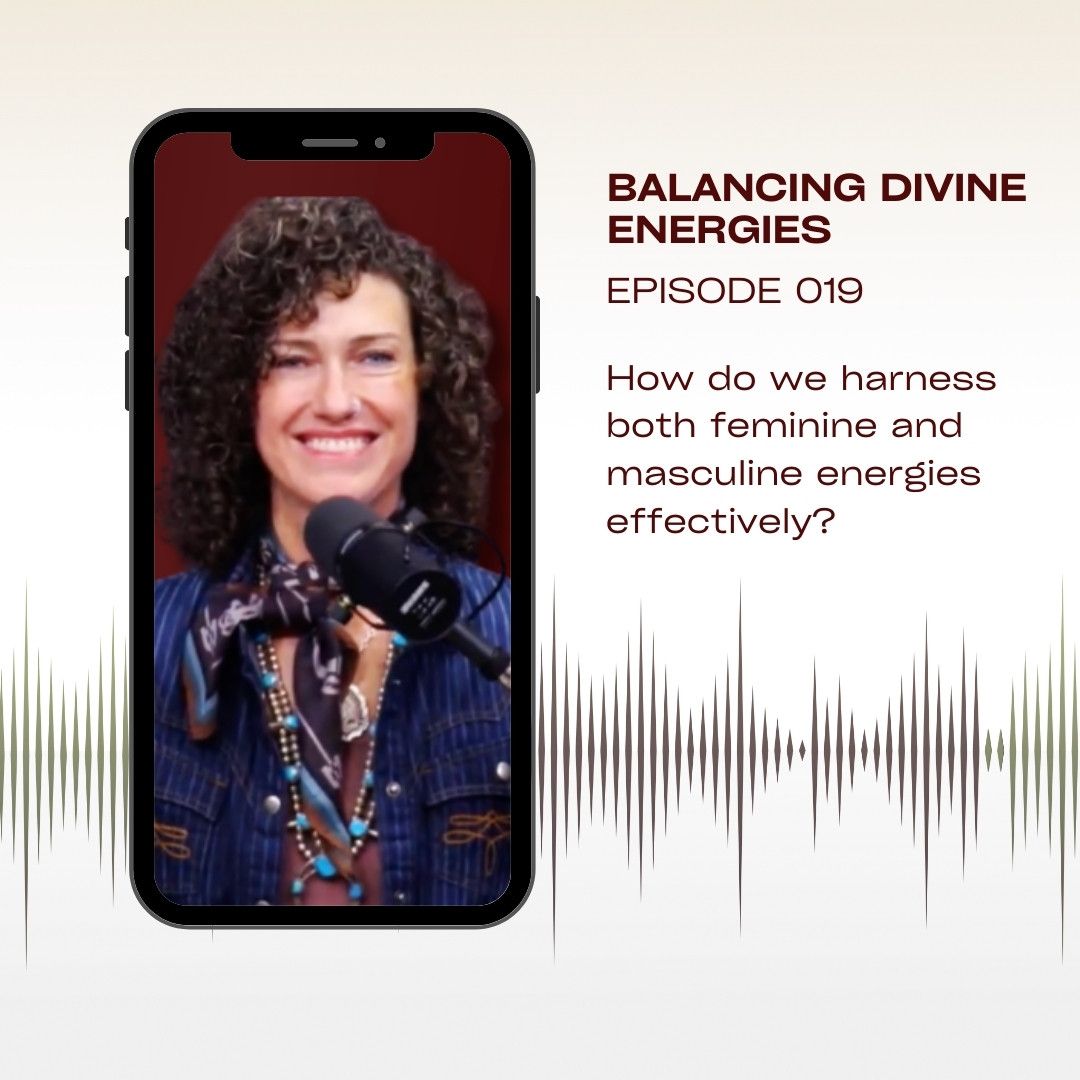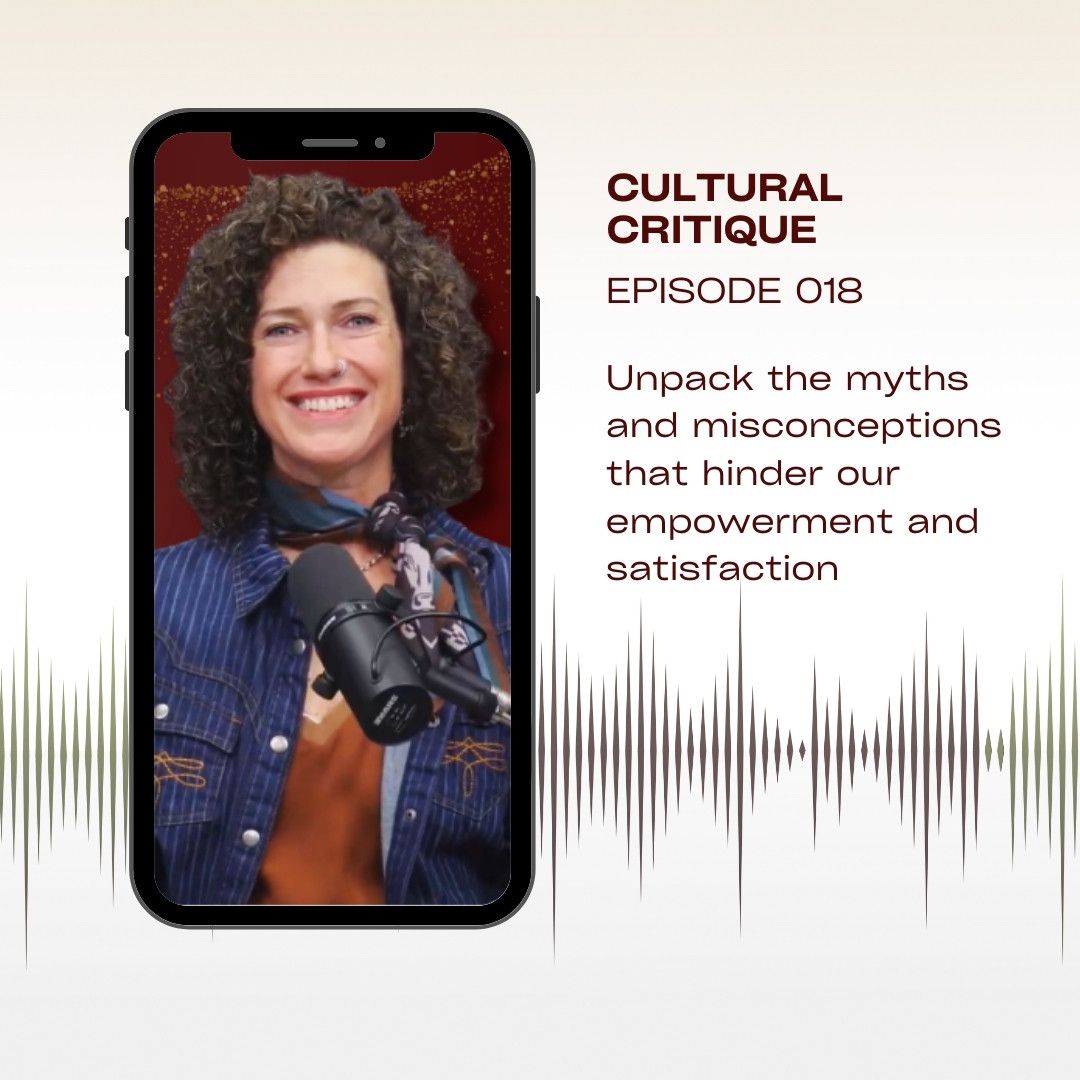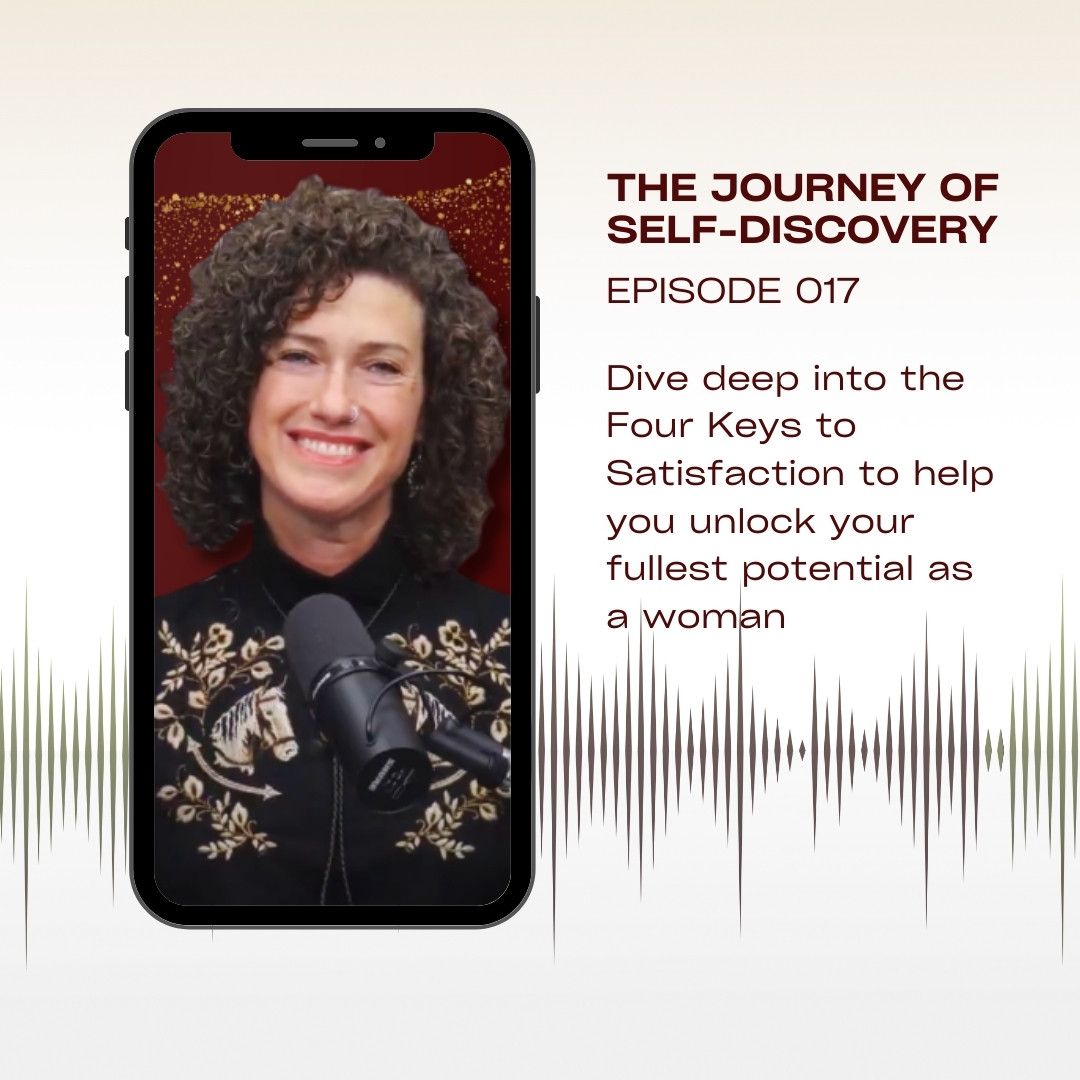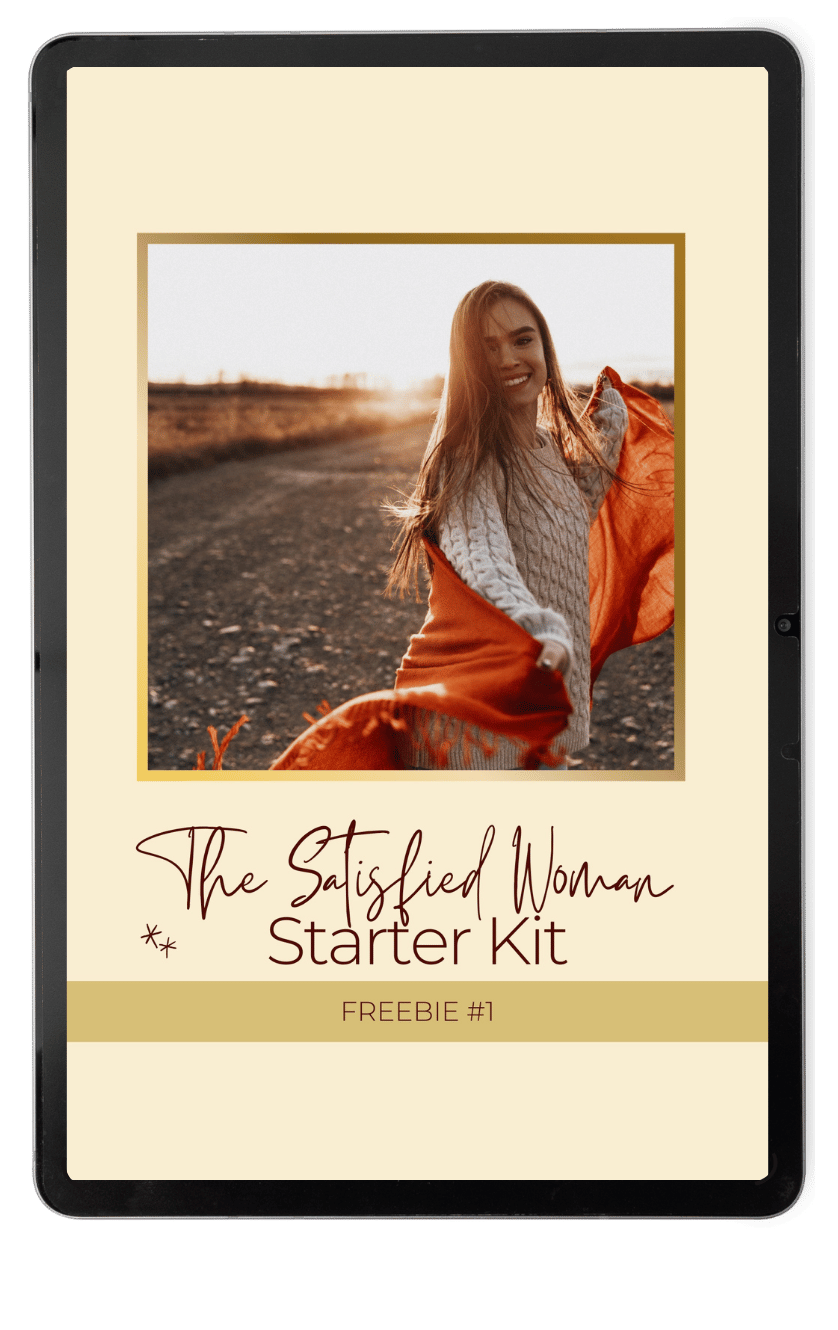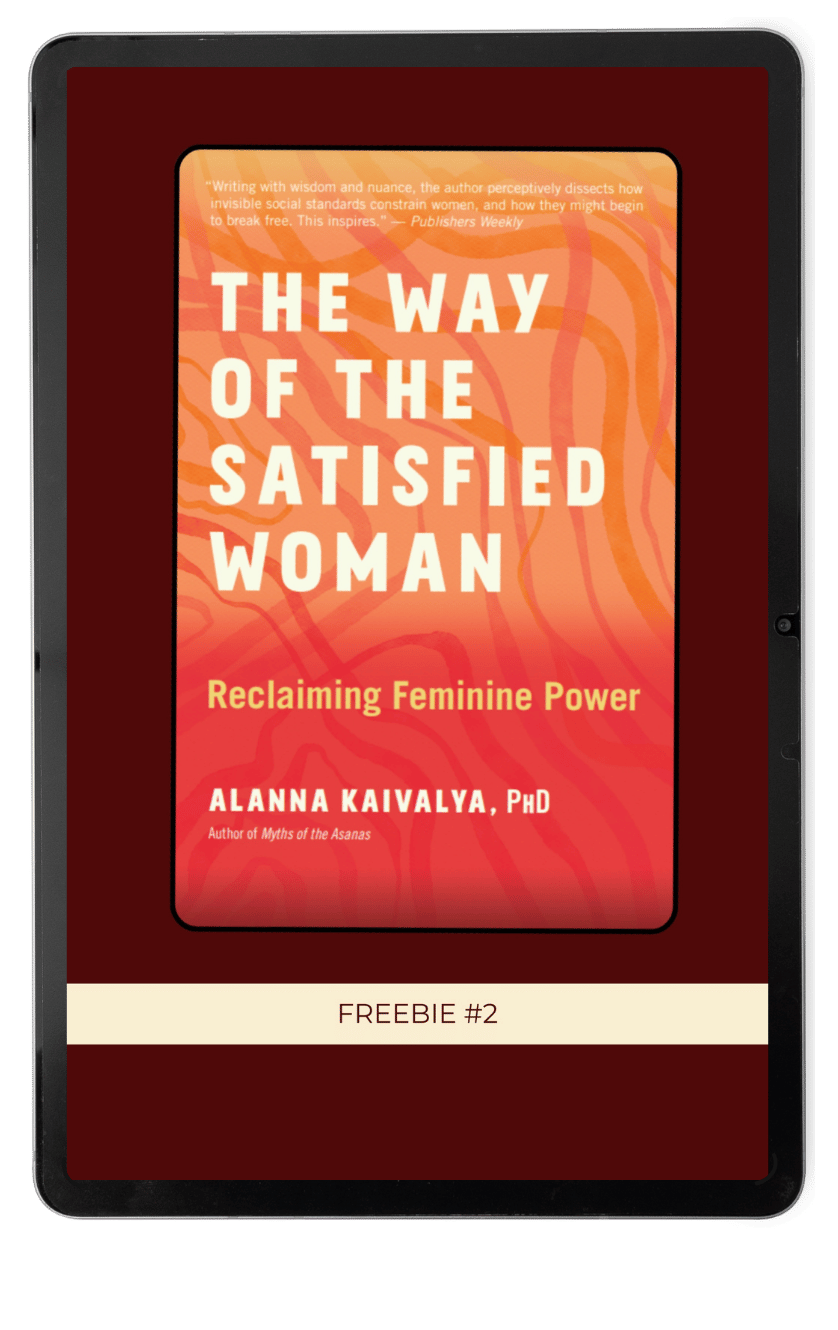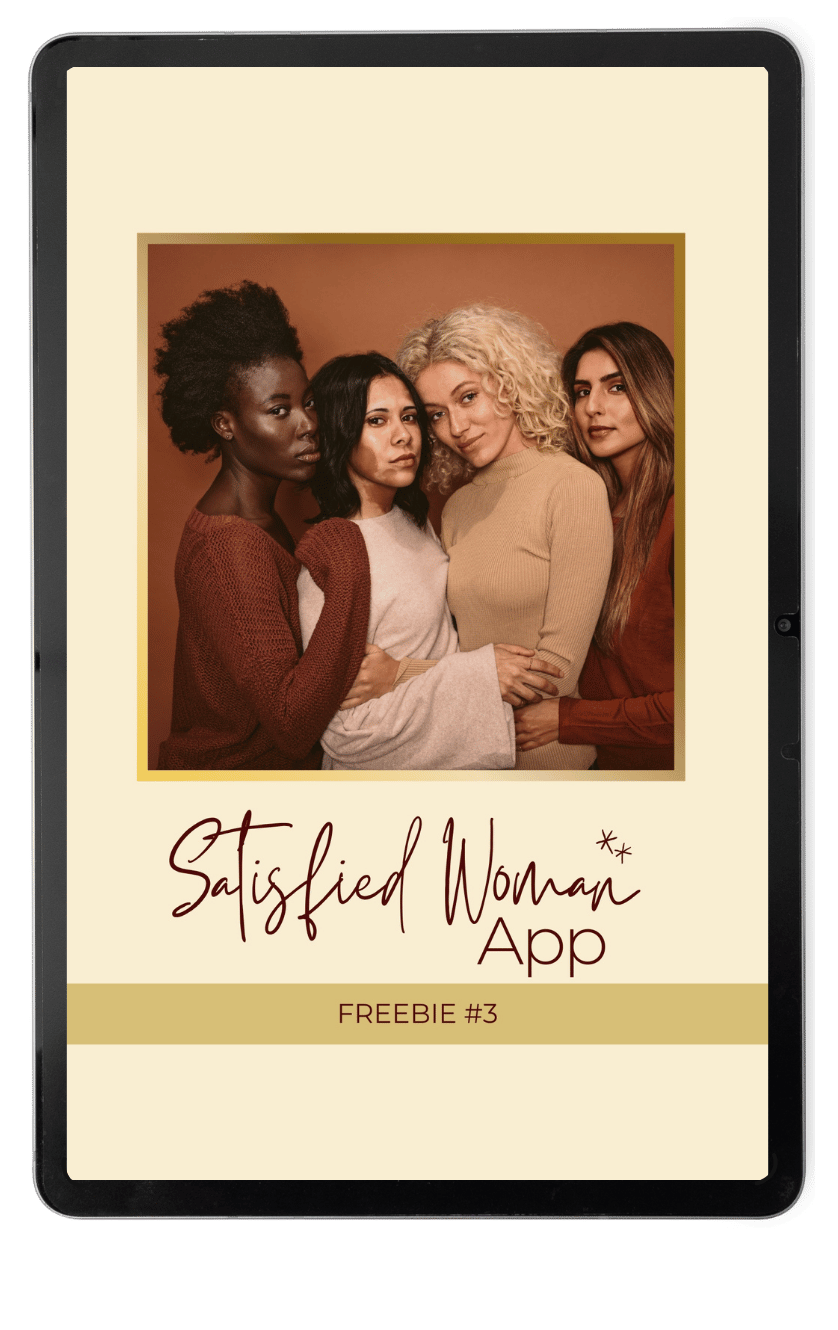Unknown Speaker 0:01
When we think about mythology or the stories of heroes, we often think about the men in those roles. But truth be told, there is quite a lot of mythological history for the feminine as well. In today's podcast, I want to go over a couple of my most favorite feminine myths and what they might say to us as modern women. Welcome to the satisfied woman podcast. I'm your host. Alanna Kaivalya. This podcast is dedicated to helping women lean into their femininity and rediscover the power of their feminine gifts. We take a look at what it means to be a modern woman and how we can live a satisfied life on our own terms. Visit the hub at thesatisfiedwoman.com and just for my podcast listeners, I've created a special page where you can access a free satisfied starter kit. Head over to thesatisfiedwoman.com/empowerme to get started with your free starter kit right away. All right, for those of you who don't know me or my background, let me tell you a little bit about why I want to present some mythological fun facts for you today. I have spent more than two decades in the study of mythology. Now, most people, when I tell them that I study mythology, they think about Greek myths, which honestly is really reductive. And yes, the Greek myths very much center masculine and masculine traits. But any mythology around the world has both masculine and feminine fun stories and traits within them, number one and number two, any historical religion or spiritual practice can be thought of as a mythology. The mythology is simply the stories or belief systems that make up our understanding of the world. Mythology helps us to cope with things that are unknown and explain to us as humans, the things that we can't explain. So our religions are also a mythology. They're a belief system structure. Now, the great modern mythologist Joseph Campbell, used to love defining mythology as other people's religions, because it's easy to look at someone else's religion and, you know, recognize the stories in them and call them a myth. It can be very difficult for us to step outside of our own belief system and recognize it as a mythology. Another big detriment to mythology is that in our modern culture, the term myth has come to mean false or something perhaps not worthy of believing in. This is very much a modern construct, with the arisal of our deep belief in science. Now, before I got a PhD in mythology, I got a bachelor's degree in physics, so I'm all for science, the scientific method. I love research as much as the next academic. But there are truths that can't actually be qualified. There are beliefs that can't be poured into a beaker, and there are equations that in the end of our life will never balance. So what do we do with those now, psychologically, we craft stories or myths or belief systems in order to help us navigate and make sense of our world. That doesn't make them untrue. It makes them internally true, psychologically true, even if we can't write them down on paper, put an equal sign with them and balance that equation. So myth has incredible power. It's soothing and directive and instructive for the psyche. It helps us to understand things that we otherwise don't understand, and it points to powerful internal truths that are common for all of us as humans. So hopefully, that little mythological overview gives you a good understanding of myth and also my deep love of it. I also spent two decades delving deeply into spiritual practices, Eastern practices, and the mythology of historical and current religious and spiritual practices. And that background is where I started to see the masculine and the feminine and how they interact with one another, how they differentiate from one another, how they complement one another and how today we really have a distorted view, truly of both the masculine and the feminine. But as a feminine woman, of course, my interest is mostly in the feminine. I started teaching about femininity many, many years ago. It was one of the most popular topics I taught
Unknown Speaker 4:58
before I even wrote a book,
Speaker 1 5:01
and there seems to be a lot of confusion around what the feminine is. So in modern culture, feminine is thought to be passive, subservient, to smile and be pretty, to always listen to and follow the masculine. Femininity is softness. Its weakness, its meekness, and it's often taking a back seat to the masculine. So if we think about modern mythological stories, like perhaps Sleeping Beauty, which, you know, I grew up as a child of the 80s. I definitely grew up with Disney mythology powerfully embedded into my psyche, and probably, like many young girls around that age, and even still desiring to have that Princess outcome where we are stuck in the castle, we have no agency. And in fact, Sleeping Beauty, she is just put to sleep. Not only does she have any agency, she doesn't even have any consciousness. And the only thing to pull her out of that deep unconscious state, of course, is the kiss of the masculine. Now, it's a lovely story, and I'm not knocking a Sleeping Beauty. Aurora is wonderful, and I've got her back in every way, shape and form. But that is not all femininity is and these myths that minimize the power of the feminine have not done a service to those of us who've grown up in this culture and still believe the feminine is weaker and less than the masculine. So let me give you a couple of examples of myth, myths that center on the feminine and share the power and insight they give to our own femininity. I write about them in my book. For those of you watching on YouTube, I do this podcast as an audio for those who like that format, but if you like the watching of it, I always post them on YouTube as well. So I'm holding up my beautiful book, and it is beautiful. My publishers did a great job designing it, and it's called The Way of the satisfied woman. And of course, with my background in religion, spirituality, mythology, academic research, psychology and women's empowerment, you know, that's what led me here. But mythology is the power to teach us and give us ideas on where we can still go. So one of my favorite myths that I write about in the book is the myth of Ariadne. So Ariadne is a Greek myth, and she is a character in the story of the Minotaur. So if you remember, or even if you don't, I'll recap it for you. The Minotaur is a bull like creature, okay? He usually is depicted as standing on two legs, perhaps a little bit devilish, looking, definitely big and imposing. The Minotaur isn't an intelligent creature. He's not working things out logically. He's just crashing around and wreaking havoc. And the perception of the Minotaur from those outside of his home base, which is a very complicated maze. Is it the Minotaur is a danger and needs to be overcome and defeated. Now, even to get to the center of the maze where the Minotaur lives, is nonsensical. You'll make a turn, that turn will change. The center is always moving. There's no clear cut path to the center again. There's no logic or reason in this world of the Minotaur. There really is only fear and from the masculine side, from the patriarchal side, the desire to oppress, defeat and dominate. Now, the Minotaur lives in somebody's kingdom, King Minos, and you know, Ariana, supposed boyfriend, decides he needs to be the champion and the hero by going into the maze and killing the Minotaur. Now, the Minotaur, I mention, is usually depicted as a bull like creature, so he's got those two horns. And historically, mythologically speaking, the Bull has always represented the friend of the feminine. Now it's a beautiful image the bull, that horn, shape of the bull represents a crescent moon, our lunar neighbor, the Moon is always associated with the feminine the moon changes, waxes and wanes every month, as do we as feminine women. Unsurprisingly, our menstrual cycles tend to coincide with the moon's phases. The moon never remains the same. It's always in flux, as are we biologically like it or not? We have hormonal shifts and changes that actually influence our attitudes and our emotions and our operations in the world. It influences what we prioritize, day in and day out. I remember. Growing up, my father used to always say a woman's prerogative is to change her mind. Now, of course, he said it disparagingly, as if changing one's mind is not desired or even a bad thing, when truly the changing of one's mind in response to conditions is appropriate and often really good. Why would we remain the same when the only constant in the universe is change. So this bull figure is often associated with femininity. We also see this in Egyptian mythology with the myth of Hathor. Hathor is a feminine goddess whose icon is the bull. So in the Minotaur, this perceived dangerous creature inside of this maze is representative of our own unconscious. Our psyche has a couple of distinct parts. It has the conscious mind, the unconscious mind and the Supra conscious mind. The super conscious mind is that part of us that is connected to the collective when we just know things that weren't necessarily taught to us, when we can access higher wisdom. That's super consciousness. Our conscious mind is our ego. That's the masculine portion of the psyche. It's the day to day, direction, decision making, outward, moving energy and the unconscious is inherently feminine, and that's where our emotions and our internal nature is stored and housed, the things that come up from within us, the things that might surprise us, the things that are locked in from early childhood that we continue to live out As adults
Unknown Speaker 11:39
in this myth, the maze
Speaker 1 11:40
is our unconscious. It's this nonsensical twisting and turning that houses so much richness. If only we could access it now. We access it every night in our dreams. And our dreams are often presented to us as myths. Dreams don't make sense. They aren't linear. They come to us in symbols. Mythology is always born out of someone's dream. Landscape. There is truth in dreams and there is truth in the unconscious. And boy, oh boy, we do so much better when we're at peace with it and when we find it the masculine, when the unconscious rears its ugly head, or the Minotaur rears its ugly head. Wants to just push it down, wants to dominate it and defeat it. But good luck with that. For all of us who have ever tried to repress our emotions, you know about the hydraulic nature of the unconscious, which is that the more you try to push it down, the more it spring loads itself and pops back up, repression doesn't work. So the more ariadnes supposed boyfriend tries to go into the maze. He gets lost, he tries to kill the Minotaur, and it instead defeats him. He cannot beat it. The Minotaur is a wild, wild creature who is the source of our greatest discomfort and our greatest triggers. As the mythologist Joseph Campbell would say, the cave you fear to enter holds the treasure that you seek, just like the mythologies of the dragon, protecting the gold. What is a dragon gonna do with gold? Really? It has nothing to do with gold, but it's this shiny object, and it just wants to protect it. When we are able to slay or befriend that dragon, we get access to that gold. It is those deep psychological truths when we befriend them become the source of our greatest strength and wisdom. Now the feminine knows this, so Ariadne is part of the myth. She basically one ups all her masculine counterparts, and instead of wandering around the maze just trying to go in that forward, linear direction like the masculine does to get to the center. She wanders in a really circuitous way, but she leaves behind her a thread. So she starts at the entrance of the maze with a spool of thread, and every turn she takes, she's unwinding this thread. So she's got a way to get back home. She's unafraid of the exploration of this dangerous maze, because she knows she can always return smart, that feminine, and once inside, when she finally gets to the center, she approaches the Minotaur not with Anger domination or the desire to slay, but rather with curiosity, humility and the desire to befriend and the Minotaur, in that way, becomes her asset. Becomes her tool. It becomes her resource. She is empowered and emboldened by it, because instead of it trying to attack. Her and defeat her and wreak havoc on the kingdom. It's now essentially her pet, her willing accomplice in life.
Unknown Speaker 15:12
So the feminine isn't afraid
Speaker 1 15:14
of a little beasty, wily, nasty Minotaur. Feminine is interested and intrigued. Feminine is curious. Curiosity is inherently feminine. Winding, circuitous, roots are inherently feminine, understanding and befriending our emotional, illogical, internal, unconscious nature is inherently feminine, and this is the only way that the Minotaur is subdued but essentially calmed, and it's by the feminine, our lovely Ariadne. Now I mentioned in terms of feminine representations and that bull iconography, the Hathor counterpart in Egyptian mythology. Now, Egyptian mythology is rich with incredible feminine goddesses. There's Sekhmet, the lion goddess. There's ISIS, the Queen, Goddess with the big wings, who sits on her throne. And there's Hathor, who is the High Priestess. Hathor, with her bull iconography, is in charge of all the astrology of the skies, the wisdom of the cosmos, but also the wisdom of all things mysterious and mythological. She understands the nature of the universe because she understands the internal workings of her own mind. Hathor has the incredible priestess training school in Egypt. It's in Dendera, by the way, I've been there. It's an incredible place. If you have the opportunity to go, I highly recommend it. And in this wisdom school, in this Mystery School, where she teaches not things that are mysterious as an unknown mysteries are simply the wisdom of our spirituality, which were at that time. Now, now we don't know what they are, because they didn't write them down. These were oral traditions that were passed down. And Hathor School of mysteries was open only to women. They held the mystical, ethereal and mythological knowledge of the day, they supported that transformational depth of work that has always been going on throughout millennia, but was sacred to the feminine in the times of Egyptian culture. So we have these powerful and there are more right. I also love Diana, the Huntress who suffers no fools, particularly the masculine. When she spies a masculine spying on her as she's changing near the river, she turns all of her animal friends into wolves who hunt him down and kill him. You will not take from me what I am not willing to offer freely. Think about that in terms of today's culture. If we were able to say to the masculine, you will not take or demand from the feminine what we are not in a position to willingly give freely. It's a powerful lesson. Diana, of course, is from Greek and Roman tradition. We don't really have powerful feminine goddesses in current traditions. I'm they do exist, but the dominant ones in the West, our most powerful feminine goddess of the West, really, that we all, I think, are familiar with, is Mary. But Mary has been deeply sanitized, and she's virginal. And, you know, not a lot of us as modern women can fully relate to that experience of a virginal lady who has a virgin birth and is, you know, not participating in the world. That's a high standard to achieve, and very likely unrealistic for a modern day woman. It's not that Mary doesn't have power. She does. I mean, she's the mother of God. This is a powerful status to uphold. But what I'm saying is it's not necessarily overly relational. We can aspire to it. We can honor it. We definitely honor her incredible power and her beauty. But some of the other mythologies of goddesses have a little richness to them, have a little grit and depth, which is how we experience life. Life is complicated. Life isn't all sparkles, rainbows and butterflies, and even though, as the feminine, we are taught and encouraged to just be pretty, to just smile, to just accommodate, to not ask questions, to not be too emotional, to be very contained, sanitized and sterilized. That just isn't our life experience, and we need myths and feminine examples that reflect the life that we're living, which is a messy, complicated life. If we are going to make mistakes, we are going to sometimes not smile, because, goodness forbid, we are definitely going to speak our mind, and I encourage us doing it more. We are the disruptors. Historically, is the women who have been the catalysts for change. Think of the incredible power of Joan of Arc. Think of the incredible legacy of the witches burned at the stake, those calling for change because of an intuitive guidance that said it was necessary. We need more of that. Those are high, empowered feminine qualities, and we find them in some of our historical myths. So myth telling is one of my most favorite activities, and so I will bring more mythology to the podcast, but let this opener whet your whistle and have you thinking about different ways to look at the feminine and different examples of the feminine in the past. And one thing to consider will be the feminine archetypes that you grew up with, what were the narratives and the stories as you were a child growing up that taught you about what the feminine was and are they true? Do we need to uphold them? Do they serve us, or can we rewrite them or even move
Unknown Speaker 21:16
them forward?
Speaker 1 21:19
It's a good question. Some of them are perfect as they are, and some of them don't fit with our experience of life. And a good mythology, a good mythology will always evolve with the people who are living with it. So my fellow satisfied women, if we would like to evolve as satisfied women, and prioritize our femininity and highlight our satisfaction. And let's start questioning. Let's start calling forth our Feminine Empowerment and live the path of the satisfied woman. Thank you so much for joining me on this podcast. It is always a pleasure to share these insights into femininity with you. For more resources, for online courses, for links to go get my book for a free starter kit, head over to my website, the satisfiedwoman.com and especially for my podcast listeners, go get the goodies I'm set up for you over at the satisfied woman.com/empower, me and until next time, dear listener, stay satisfied you.


